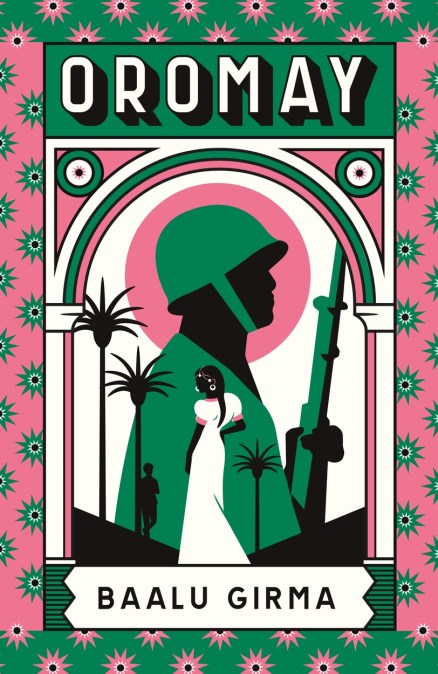Newsletter Signup
By clicking ‘Sign Up,’ I acknowledge that I have read and agree to Hachette Book Group’s Privacy Policy and Terms of Use
Reviews
A novel widely believed to have cost its author his life, a prayer against war, oppression and the erosion of our humanity. David DeGusta and Mesfin Felleke Yirgu have done an outstanding job translating Oromay, giving the world access to one of the most important and enduring works of literature in Ethiopia
A startling, intimate and gripping saga of war-time Ethiopia turned topsy-turvy. In his brave dissection of rampaging power and evasive language, Girma recalls George Orwell and Aldous Huxley
Reading Oromay sent me back to when I first watched Casablanca. It has the same surefire set of ingredients that draws you into the story and makes you empathise with its characters. Eritrea in the 1980s, war, junta, coffee shops where local spies and CIA agents drink coffee, a love story . . . A gripping novel that has 'documentary' flavour
Oromay is an astonishing and compelling tale of revolution and betrayal. It is also the story of Tsegaye - witty, observant, and dedicated - who finds love at the same time as he discovers how dangerous his world really is. Written with breathtaking psychological precision, Baalu Girma's novel is still frighteningly relevant today. Oromay is impossible to put down. As the last book ever written before Baalu Girma disappeared, what you have before you is also an uncompromising testimony to the power of words to outlast regimes. Oromay is a gift to a new generation of readers
Ethiopia has spent a hundred years composing extraordinary novels in Amharic, yet virtually none have been translated into English. David DeGusta and Mesfin Felleke Yirgu have provided the world a service by translating Oromay by Baalu Girma, one of the most important novels in Amharic. Banned within days of publication, this thinly veiled roman a clef by a former propagandist about Ethiopian government repression in Eritrea details the roguish main character's increasing disillusionment as he witnesses the bureaucracy of occupation and the horrors of war. In an admirably natural English, this lively translation captures the humor and verve of the original. The translators revel in all the strengths of this dialog-driven war journalism story and its sharp social observations about who sacrifices the most humanity, oppressor or oppressed
A fast, fluent and often gripping read . . . From clandestine Le Carré-style intrigue and steamy Fleming-esque trysts to scenes from a battlefield "hellscape" that nod to Hemmingway
Gorgeous physical settings . . . the dark chess games of the cold war; switchbacks and betrayals, hidden loyalties, cross-loyalties and grudges . . . This is fiction as reportage, in a context where the official reportage was often effectively fiction. It carries the shock of truth
Impressive . . . Justifably a modern classic in Ethiopia
A gripping tale of love, war and espionage
Absoring . . . What makes Oromay so subversive is its counterpoint of war's horror with romance

